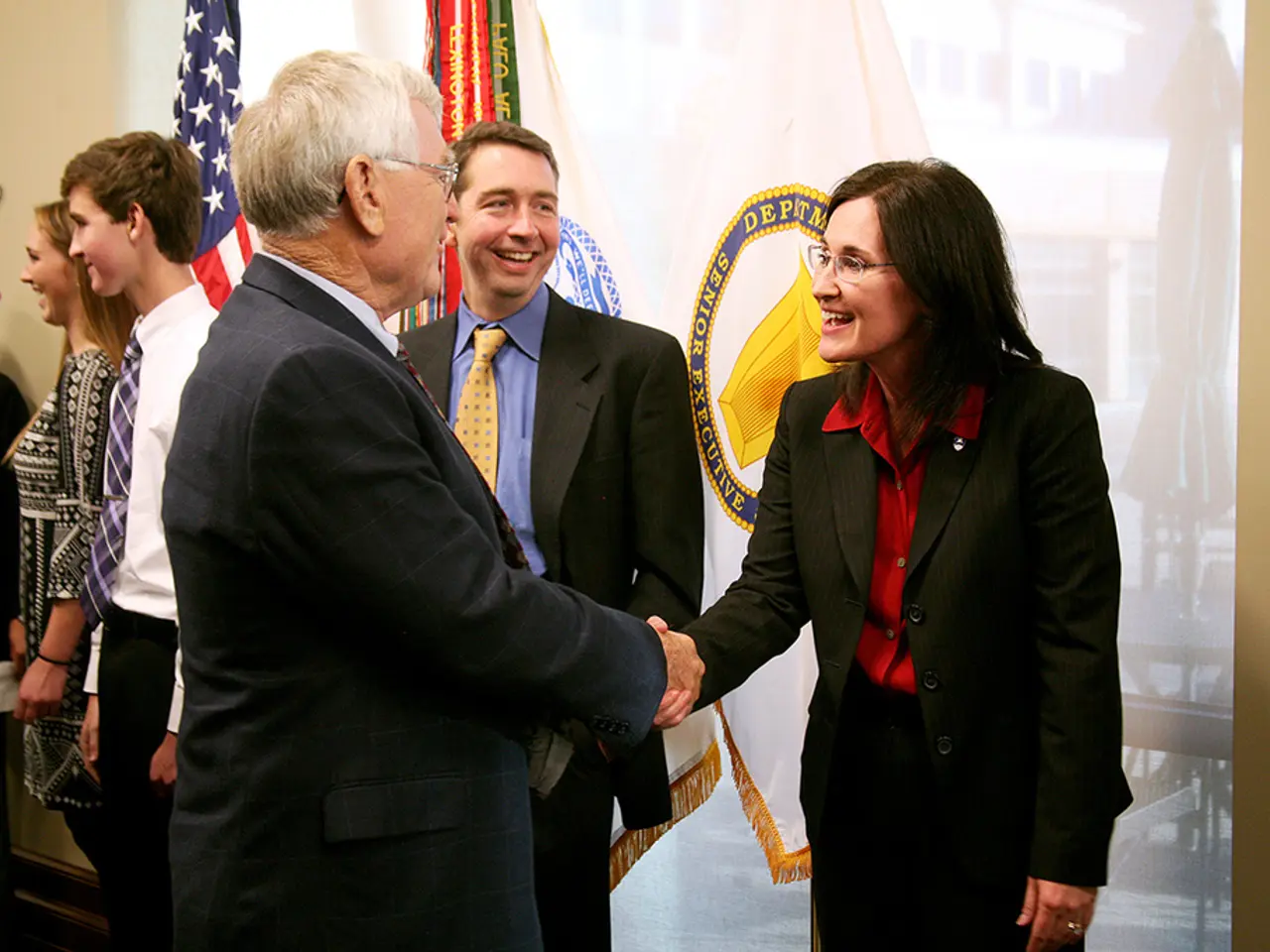Aggravated initiatives for a truce in the ongoing conflict of Gaza
The peace negotiations between Israel and Hamas have shown tentative progress towards a temporary ceasefire, with Hamas agreeing to free half of the Israeli hostages in Gaza in exchange for the release of some Palestinian prisoners. This ceasefire proposal, brokered by Egyptian and Qatari mediators, is similar to an earlier plan pushed by former US President Donald Trump's Middle East envoy, Steve Witkoff.
The proposed ceasefire envisions a humanitarian truce with increased aid access to Gaza and the redeployment of Israeli forces, with negotiations continuing towards a more comprehensive end-of-war agreement. However, the Israeli government remains firm in demanding the release of all hostages for any deal to proceed, maintaining a tougher stance than Hamas’s partial release offer.
The role of US mediators, while significant in past efforts, appears limited at present. Trump facilitated a previous truce in early 2025 and remains vocal on social media, advocating for Hamas’s defeat rather than compromise. Although US mediation helped shape proposals and exerts diplomatic weight, the current US administration under Biden has played a more background role compared to Trump’s active engagement. Arab mediators from Egypt and Qatar lead shuttle diplomacy, with the US offering backing but seemingly not pressing Israel to shift its hardline position.
Key challenges remain in reaching a comprehensive agreement. Israel insists on complete hostage release and refuses any deal allowing Hamas to remain armed. Hamas, on the other hand, demands a lasting ceasefire, full prisoner exchange, and Israeli withdrawal; they are willing to cede governance to other Palestinians but not disarm while occupation persists. The potential for a comprehensive agreement depends on reconciling these demands and securing broad regional and international coordination.
US businessman Bishara Bahbah, considered a confidant of US President Donald Trump, has called on both warring parties to immediately return to the negotiating table. Bahbah advocates for a 60-day ceasefire to save lives, protect hostages, and create conditions for progress. However, indirect negotiations over a 60-day ceasefire have stalled.
The EU has condemned the killing of Al-Jazeera journalist Anas al-Shaqra and four other staff members by Israeli forces in the Gaza Strip. The EU foreign policy chief, Kaja Kallas, urges Israel to allow more trucks and facilitate better distribution of aid to the besieged Gaza Strip.
The ongoing conflict has claimed more than 61,000 lives since it began, according to the health authority controlled by Hamas in Gaza, but the number does not distinguish between civilians and fighters. An escalation of the war in the Gaza Strip would increase the number of casualties and endanger the lives of hostages held by Hamas, according to Bishara Bahbah.
Israel's new war plan, as stated by Prime Minister Benjamin Netanyahu, includes taking the city of Gaza and dismantling Hamas in central refugee camps. Netanyahu believes that given Hamas' refusal to lay down its arms, Israel has no choice but to finish the job and complete the defeat of Hamas. However, Netanyahu is not ready for a partial agreement, according to recent reports.
Bahbah predicts that negotiations for a comprehensive agreement could take months. The current status of peace negotiations shows tentative progress towards a temporary 60-day ceasefire and partial hostage release, but the prospect of a comprehensive peace agreement remains uncertain due to sharp divergences over hostages and long-term terms.
Read also:
- Court petitions to reverse established decision on same-sex marriage legalization
- Commemoration of 200 Days of American Resurgence Unveiled
- Minister Bärbel Bas expresses doubts about her tenure as a minister following a recent interview during the summer.
- Trump's enforcement actions in Washington D.C.: Insights from the political arena








